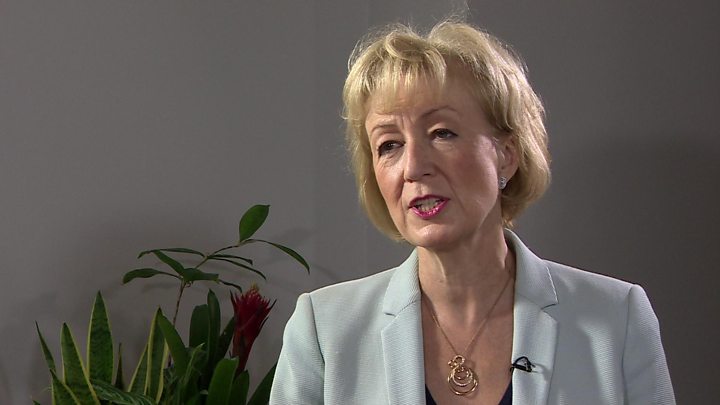Despite the Commons leader's promises, the Tories are rapidly running out of time to pass crucial Brexit rules

Commons leader Andrea Leadsom has tried to bat off concerns that crucial legislation would not be ready in time for Brexit.
“Much of the preparations for Brexit takes places in secondary legislation, something that’s often not covered by media….
“We have up to 600 statutory instruments, we’ve now laid 400 of them which we’re confident will be passed…All those that need to be passed by Brexit day will be,” she told Radio 4’s Today programme.
But analysis by the independent Hansard Society suggests time is very much running.
Secondary legislation – passed through Statutory Instruments (and also known as ‘Henry VIII powers’) – is a way for ministers to make to make detailed orders, rules or regulations without needing to pass a bill. Often they are technical, sometimes they have significant impacts, but they generally don’t require debate unless it is demanded.
Nonetheless, they still need to get through Parliament in the event that there’s no deal. And it appears Labour’s allegation that the Tories are running down the clock has something to it. In fact, Labour peer George Foulkes went so far as to say Leadsom was ‘lying’:
Andrea Leadsom is lying on @BBCr4today when she says all necessary legislation for Brexit will be passed by end of March— George Foulkes (@GeorgeFoulkes) February 12, 2019
According to the Hansard Society, “83% of the time available to lay the SIs before exit day has now elapsed; but only 67% of the minimum number of SIs the government says are needed for Brexit have been laid before Parliament.”
The Institute for Government note that the problem is worse than this:
“Although around 400 statutory instruments have been tabled, only 119 have actually passed, so nearly 500 still need to enter into law. Roughly half of the total need to go through delegated legislation committees (under affirmative procedure), requiring ministerial time and willing MPs.”
The other half require at least 21 days to pass.
“If the UK wants these statutory instruments to be in place for 29 March, the latest sitting day they can be laid is need to be laid is 7 March,” the Institute for Government helpfully point out. That’s four weeks away.
That’s just secondary legislation. In the event of no deal, the government has said that six full bills will need to be passed as Acts of Parliament – a financial services bill, a healthcare bill, a trade bill, an immigration bill, an agriculture bill and a fisheries bill.
None of these have received Royal Assent yet – and delay has crept into the timetable for the Agriculture and Fisheries bills (both are waiting to return to the Commons for committee stage), a spokesperson for the Institute for Government tells us.
There are two other warning signs dressed up as ‘progress’ today.
The People’s Vote campaign note that Liam Fox’s trade deal push is a red herring: “The trade minister has finally signed off the first of his “rollover” trade deals with Switzerland. That’s right, with less than 50 days to go until Brexit, Fox has now managed to copy one of the forty or so trade deals we already had as a member of the EU.”
And fresh efforts at finding a Brexit compromise aren’t too uplifting either. As Politico’s Jack Blanchard writes this morning, there’s another worrying development for those hoping to avoid a no-deal Brexit: “Six Cabinet ministers were on Monday evening expected to meet in central London in an attempt to reach a compromise over Brexit,” according to Telegraph Deputy Political Editor Steven Swinford. “The meeting is said to have been brokered by Chris Grayling, the transport secretary.” We’re all doomed.
Josiah Mortimer is Editor of Left Foot Forward. Follow him on Twitter.
To reach hundreds of thousands of new readers we need to grow our donor base substantially.
That's why in 2024, we are seeking to generate 150 additional regular donors to support Left Foot Forward's work.
We still need another 117 people to donate to hit the target. You can help. Donate today.



